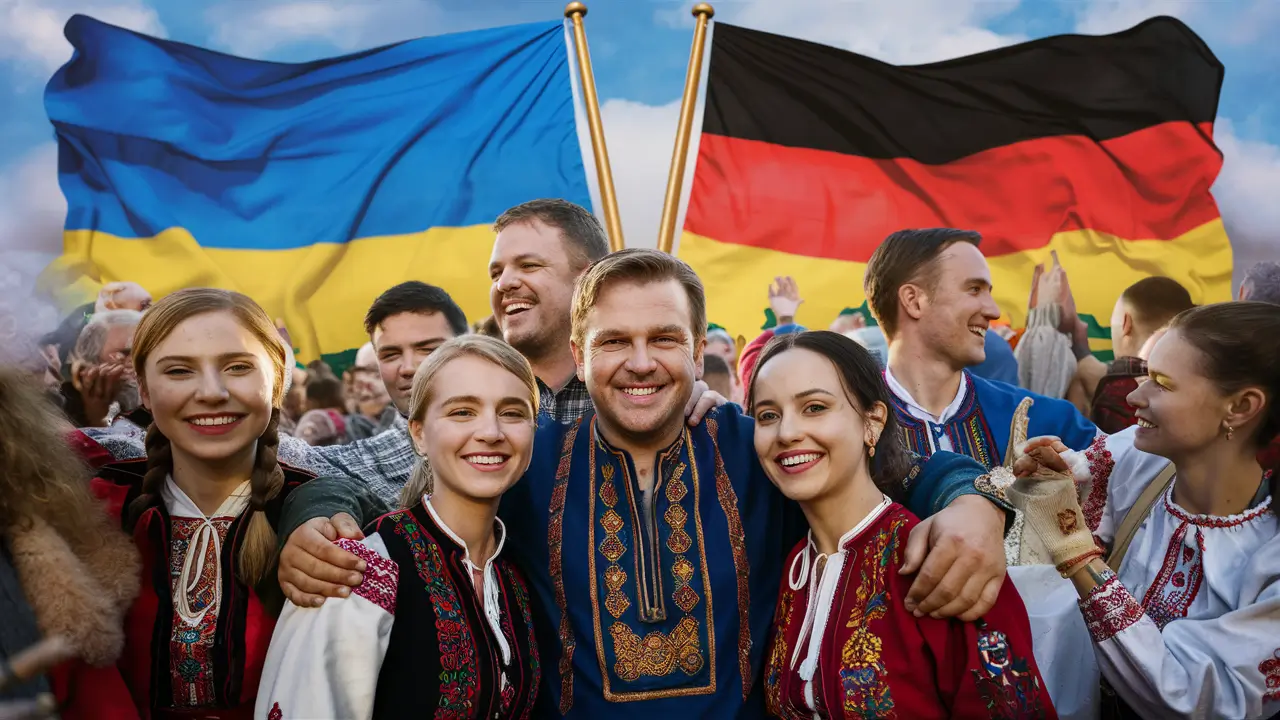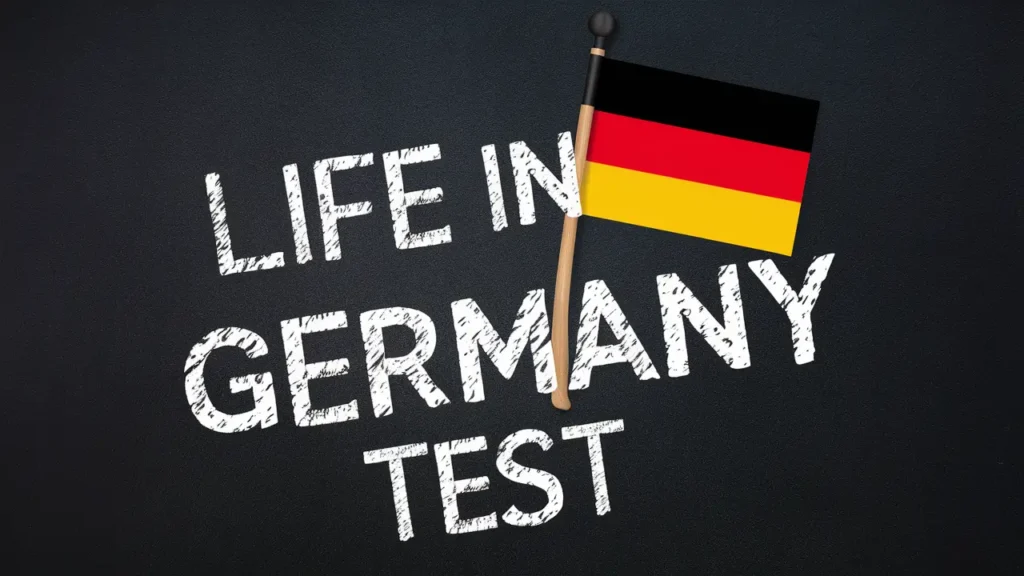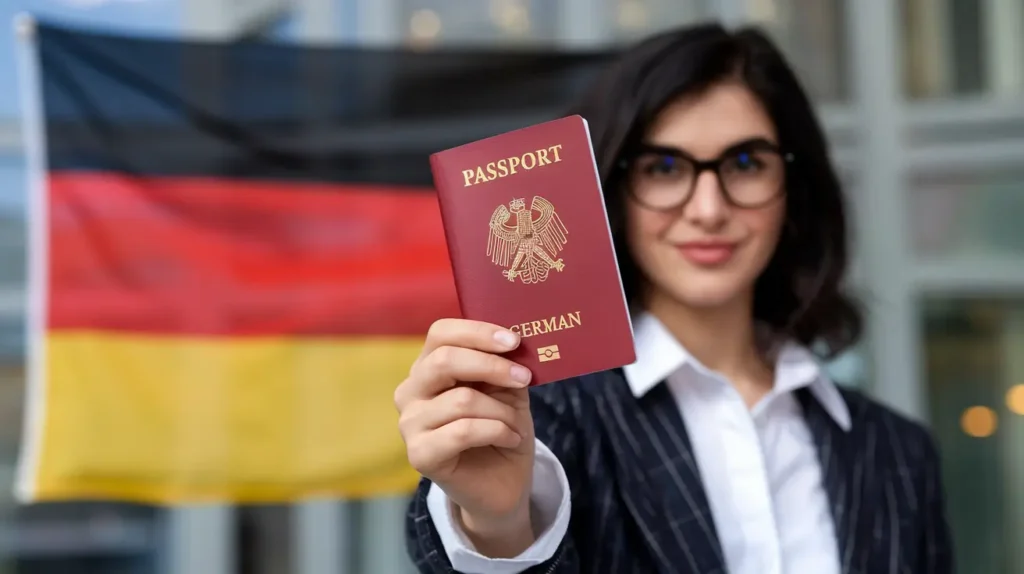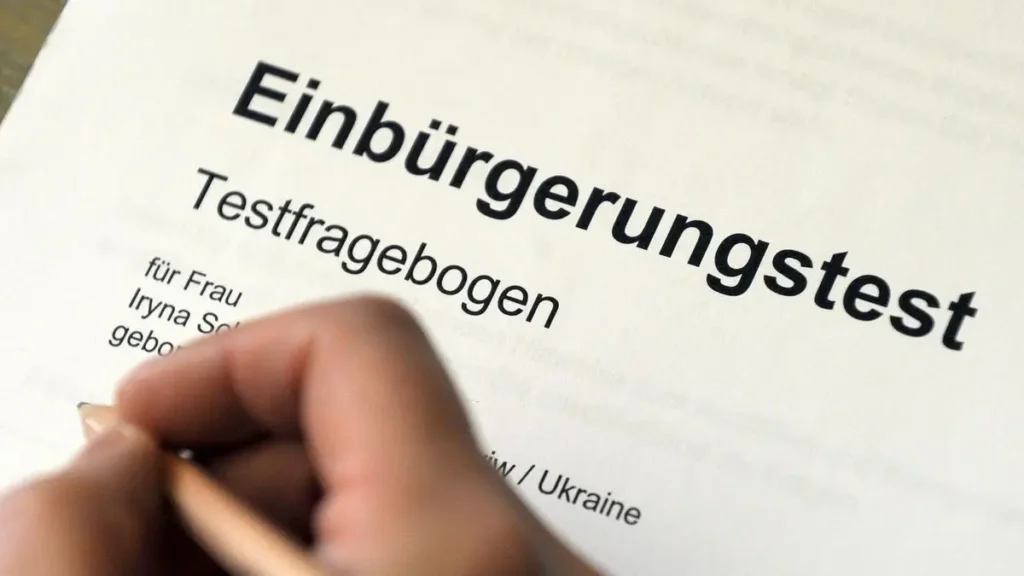Wondering about German Citizenship for Ukrainians? The path to German citizenship has recently undergone significant changes, opening new doors for many immigrants, including Ukrainians. With the introduction of the new German citizenship law in 2023, the process has become more accessible and inclusive. This comprehensive guide aims to provide Ukrainians with all the necessary information about obtaining German citizenship under the new regulations.
- 1. Overview of the New German Citizenship Law
- 2. Eligibility Requirements for Ukrainians
- 3. The Application Process
- 4. Dual Citizenship: New Possibilities
- 5. Benefits of German Citizenship for Ukrainians
- 6. Challenges and Considerations
- 7. Support and Resources for Ukrainian Applicants
- 8. Frequently Asked Questions
- Final Thoughts
Germany has long been a popular destination for Ukrainian immigrants, offering economic opportunities, high living standards, and a rich cultural experience. Now, with the modernization of its citizenship laws, Germany is positioning itself as an even more attractive option for those seeking to make it their permanent home.
In this article, we will explore the intricacies of the new German citizenship law, its specific implications for Ukrainian applicants, and provide a step-by-step guide to navigating the naturalization process. Whether you’re a recent arrival or have been living in Germany for years, this guide will help you understand your options and potential path to becoming a German citizen.
1. Overview of the New German Citizenship Law
The new German citizenship law, which came into effect in 2023, represents a significant shift in Germany’s approach to naturalization. This reform aims to modernize the citizenship process, making it more accessible to immigrants who have integrated into German society. Here are the key changes that are particularly relevant for Ukrainian applicants:
- Reduced residency requirement: The standard period of residency required for citizenship has been reduced from eight years to five years. In some cases, it can be as short as three years for those who demonstrate exceptional integration.
- Dual citizenship acceptance: One of the most significant changes is the broad acceptance of dual citizenship. Previously, most non-EU citizens had to give up their original citizenship to become German. Now, Ukrainians can retain their Ukrainian citizenship while acquiring German nationality.
- Language proficiency: While German language skills are still required, the new law provides more flexibility in how these skills can be demonstrated.
- Integration criteria: The law now places a stronger emphasis on successful integration into German society, considering factors such as civic engagement and professional achievements.
- Streamlined process for children: Children born in Germany to foreign parents can now acquire German citizenship more easily if at least one parent has been a legal resident for five years.
- Special provisions for older applicants: The law includes more lenient requirements for applicants over 67 years old, particularly regarding language proficiency.
These changes reflect Germany’s recognition of the valuable contributions immigrants make to its society and economy. For Ukrainians considering German citizenship, these reforms present a more achievable path to full participation in German civic life.
2. Eligibility Requirements for Ukrainians
To be eligible for German citizenship, Ukrainian applicants must meet several key requirements. Let’s break these down into specific categories:
2.1. Residency Requirements
Under the new law, the general residency requirement has been reduced to five years of legal and continuous residence in Germany. However, there are some variations:
- Standard path: Five years of legal residence in Germany.
- Accelerated path: Three years of residence for those who demonstrate exceptional integration through language skills, professional achievements, or civic engagement.
- Spouse of a German citizen: Three years of residence in Germany and two years of marriage to a German citizen.
It’s important to note that time spent in Germany on a student visa or as an asylum seeker may be partially counted towards this requirement, depending on individual circumstances.
2.2. Language Proficiency
Demonstrating German language skills is a crucial part of the citizenship process. The requirements are:
- General requirement: B1 level of the Common European Framework of Reference for Languages (CEFR).
- Exceptional cases: A2 level may be sufficient for those over 67 years old or those who can demonstrate hardship.
- Proof of proficiency: This can be shown through language certificates, school qualifications from German schools, or completion of integration courses.
For many Ukrainians, achieving B1 level German is very attainable, especially given the linguistic similarities between Ukrainian and German, both being Indo-European languages.
2.3. Integration and Civic Knowledge
Applicants must demonstrate their integration into German society and their understanding of the German legal and social system. This includes:
- Passing the “Leben in Deutschland” (Life in Germany) test, which covers German history, culture, and the political system.
- Demonstrating commitment to the free democratic basic order of Germany.
- Showing involvement in community activities, volunteer work, or participation in local clubs and organizations can strengthen an application.
2.4. Financial Self-Sufficiency
Applicants must be able to support themselves and their dependents without relying on social welfare benefits. This means:
- Having a stable job or a reliable source of income.
- Not being dependent on unemployment benefits or other long-term social assistance.
- Exceptions may be made for circumstances beyond the applicant’s control, such as illness or disability.
Meeting these eligibility requirements is the first step towards German citizenship. In the next section, we’ll explore the application process in detail.
3. The Application Process
Navigating the German citizenship application process can seem daunting, but with the right information and preparation, it can be a smooth journey. Here’s a step-by-step guide to help Ukrainian applicants through the process:
3.1. Required Documents
To apply for German citizenship, you’ll need to gather several important documents:
- Valid passport or national ID card: This proves your Ukrainian citizenship.
- Birth certificate: An official copy, translated into German by a certified translator.
- Residence permit: Showing your legal status in Germany.
- Proof of residence: Registration certificate (Meldebescheinigung) from your local registration office.
- Language certificate: Proving your B1 level German proficiency.
- Integration course certificate: If you’ve completed one.
- Proof of income: Pay slips, tax returns, or other financial documents.
- Rental agreement or proof of home ownership: To demonstrate your living situation.
- Marriage certificate: If applicable, translated into German.
- Criminal record check: Both from Germany and Ukraine.
- Citizenship test certificate: Showing you passed the “Leben in Deutschland” test.
3.2. Fees and Costs
The costs associated with obtaining German citizenship include:
- Application fee: Currently set at €255 for adults and €51 for minor children.
- Document translation costs: Vary depending on the number and complexity of documents.
- Language course fees: If you need to take classes to reach B1 level.
- Integration course fees: If required, though subsidies are often available.
- Citizenship test fee: Approximately €25.
It’s worth noting that fee reductions or waivers may be available in cases of financial hardship.
3.3. Processing Times
The processing time for citizenship applications can vary significantly depending on the workload of the local citizenship authority and the complexity of individual cases. On average, you can expect:
- Initial processing: 3-6 months for the authority to review your application and request any additional documents.
- Decision time: Another 3-6 months for a decision to be made once all documents are submitted.
- Total time: The entire process typically takes between 6 months to 2 years.
It’s important to stay patient during this period and promptly respond to any requests for additional information or documents.
4. Dual Citizenship: New Possibilities
One of the most significant changes in the new German citizenship law is the broad acceptance of dual citizenship. This development is particularly relevant for Ukrainian applicants. Here’s what you need to know:
- Retention of Ukrainian citizenship: Under the new law, you can now become a German citizen without giving up your Ukrainian citizenship.
- Benefits of dual citizenship: This allows you to maintain ties with both countries, travel freely between them, and enjoy the rights and protections of both nations.
- Obligations: It’s important to understand that dual citizens have obligations to both countries, including potential military service requirements or tax implications.
- Ukrainian law: While Germany now allows dual citizenship, it’s crucial to check the current Ukrainian stance on dual citizenship, as laws can change.
This change removes a significant barrier that previously deterred many Ukrainians from pursuing German citizenship. It allows for a deeper connection to both cultures and opens up new opportunities for work, travel, and personal development.
5. Benefits of German Citizenship for Ukrainians
Obtaining German citizenship offers numerous advantages for Ukrainians:
- EU citizenship: As a German citizen, you automatically become an EU citizen, granting you the right to live and work in any EU country.
- Voting rights: You can participate fully in Germany’s democratic process, voting in all elections and referendums.
- Improved job prospects: Some positions, particularly in the public sector, are reserved for EU/German citizens.
- Visa-free travel: German passport holders enjoy visa-free or visa-on-arrival access to numerous countries worldwide.
- Consular protection: You’ll have access to German consular services worldwide, which can be particularly helpful when traveling.
- Social benefits: Full access to Germany’s comprehensive social security system.
- Education opportunities: Access to free education in Germany and other EU countries, including universities.
- Stability and security: Germany offers political stability, a strong economy, and a high standard of living.
- Cultural integration: Citizenship can foster a deeper sense of belonging and integration into German society.
- Family reunification: Easier process for bringing family members to Germany.
These benefits make German citizenship an attractive prospect for many Ukrainians looking to build a long-term future in Europe.
6. Challenges and Considerations
While the path to German citizenship has been made easier, there are still challenges and important considerations for Ukrainian applicants:
- Language barrier: Achieving B1 level German can be challenging and time-consuming for some.
- Cultural adjustment: Adapting to German cultural norms and societal expectations can take time.
- Professional recognition: Ensuring Ukrainian qualifications are recognized in Germany may require additional steps or re-certification.
- Financial requirements: Meeting the self-sufficiency criteria can be challenging, especially in the current economic climate.
- Bureaucratic complexity: Navigating the German bureaucratic system can be daunting for newcomers.
- Emotional aspects: The decision to take on a new citizenship can be emotionally complex, especially if it involves giving up Ukrainian citizenship.
- Family considerations: If not all family members are eligible or choose to naturalize, it can lead to mixed-status families.
- Tax implications: Understanding and complying with tax obligations in both countries if maintaining dual citizenship.
- Military service: Clarifying obligations regarding military service in both Ukraine and Germany.
- Political engagement: Balancing political involvement and loyalties between two countries.
Being aware of these challenges allows for better preparation and a smoother transition to German citizenship.
7. Support and Resources for Ukrainian Applicants
Fortunately, there are numerous resources available to support Ukrainians through the citizenship process:
- Integration courses: Offered by the Federal Office for Migration and Refugees (BAMF), these courses cover language skills and cultural knowledge.
- Migrationsberatung für erwachsene Zuwanderer (MBE): Free migration counseling services for adult immigrants.
- Jugendmigrationsdienste (JMD): Support services specifically for young immigrants.
- Local Ukrainian community organizations: Often provide support, advice, and a sense of community.
- Legal aid services: Some cities offer free or low-cost legal advice for immigrants.
- Online resources: The BAMF website provides comprehensive information on the naturalization process.
- Language learning apps and resources: Tools like Duolingo, Deutsche Welle’s language courses, and local Volkshochschulen (adult education centers) offer language learning support.
- Citizenship test preparation: Many organizations offer courses to prepare for the “Leben in Deutschland” test.
- Social workers and integration officers: Available in many cities to provide personalized support.
- Buddy programs: Some cities run programs pairing newcomers with local volunteers for support and cultural exchange.
Utilizing these resources can significantly ease the path to citizenship and help with overall integration into German society.
8. Frequently Asked Questions
To address common concerns, here are answers to frequently asked questions about German citizenship for Ukrainians:
- Q: Can I apply for German citizenship if I came to Germany as a refugee?
A: Yes, time spent in Germany as a recognized refugee counts towards the residency requirement for citizenship. - Q: Do I need to give up my Ukrainian citizenship?
A: Under the new German law, you can retain your Ukrainian citizenship. However, always check the current Ukrainian laws regarding dual citizenship. - Q: What if I don’t pass the language test?
A: You can retake the test. There are also exceptions for older applicants or those with learning difficulties. - Q: How long does the whole process take?
A: On average, the process takes between 6 months to 2 years from application to decision. - Q: Can my children become German citizens if I naturalize?
A: Minor children usually acquire German citizenship automatically when a parent naturalizes. - Q: What if I have a criminal record?
A: Minor offenses may not prevent naturalization, but serious crimes can be a barrier. Each case is assessed individually. - Q: Can I apply for citizenship if I’m unemployed?
A: Long-term unemployment can be an obstacle, but exceptions may be made for reasons beyond your control, like illness or caring responsibilities. - Q: Do I need to attend an official ceremony?
A: Yes, there’s usually a citizenship ceremony where you receive your certificate and take an oath. - Q: Can I live in other EU countries as a German citizen?
A: Yes, German citizenship grants you the right to live and work in any EU country. - Q: What happens if I spend long periods outside Germany after getting citizenship?
A: Once you’re a citizen, you can generally spend as much time outside Germany as you wish without losing citizenship.
Final Thoughts
Whether you’re just starting to consider German citizenship or are already in the midst of the application process, we hope this guide has provided valuable insights and information. As Germany continues to evolve as a nation of immigrants, your participation in this process contributes to the rich tapestry of German society.
Seize this opportunity, prepare diligently, and anticipate the moment you can proudly identify as both Ukrainian and German. Welcome to your new chapter in Germany!





